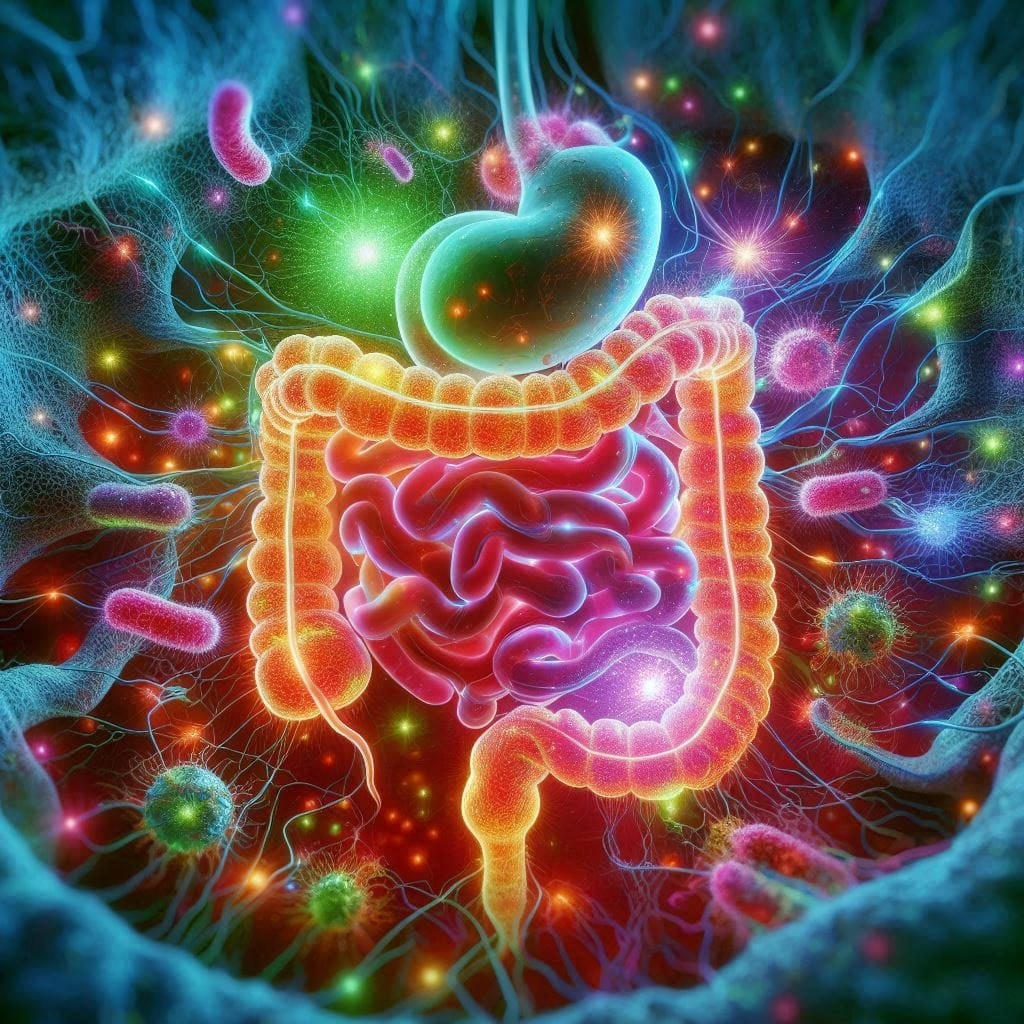Ever had that burning feeling in your stomach that just won’t quit? Or maybe you’ve been bloated so often you’re starting to wonder if your belly button’s trying to become an outie? Well, there might be a tiny troublemaker behind all this drama: H. pylori. Don’t worry, we’re about to dive into the world of this sneaky little bacteria and figure out what’s really going on in your gut.
What in the world is H. pylori?
Helicobacter pylori, or H. pylori for short, is a type of bacteria that’s got a thing for your stomach lining. It’s like that annoying houseguest who overstays their welcome and messes up your place. This spiral-shaped menace burrows into the lining of your stomach and small intestine, causing all sorts of chaos1.
Here’s the kicker: H. pylori is incredibly common. We’re talking about two-thirds of the world’s population carrying this bacteria around5. But here’s the good news – most people never even know they’ve got it. For some unlucky folks, though, H. pylori can lead to some pretty nasty stuff like ulcers and even stomach cancer.
How does H. pylori set up shop in your stomach?

You might be wondering, “How the heck did I get this uninvited guest?” Well, H. pylori is a sneaky little bugger. It usually hitches a ride through contaminated food or water, or it might spread through close contact with an infected person.
Think about it like this: imagine your stomach as a bustling city. H. pylori is like a gang of troublemakers that sneak in and start causing problems. They’re tough little critters, too. Your stomach is usually an acid-filled no-go zone for most bacteria, but H. pylori? They’ve got a special superpower. They produce an enzyme called urease that neutralizes stomach acid, creating a cozy little bubble for themselves.
What are the symptoms of H. pylori infection?
Now, here’s where it gets tricky. Many people with H. pylori don’t have any symptoms at all. But for those who do, it’s like having a party in your stomach – and not the fun kind. Here’s what you might experience:
- A burning pain in your belly (it might get worse when your stomach’s empty)
- Feeling bloated (like you’ve swallowed a balloon)
- Nausea that just won’t quit
- Loss of appetite (because who wants to eat when their stomach’s throwing a fit?)
- Burping more than usual
- Unexplained weight loss
If you’re nodding along to these symptoms, it might be time to have a chat with your doctor.
The natural approach: Can Mother Nature help kick out H. pylori?
Alright, so you’ve got this unwelcome guest in your gut. The usual approach is to bomb it with antibiotics. But what if you’re looking for a gentler, more natural way to show H. pylori the door? Well, you’re in luck! There are some promising natural remedies that might help.
1. Probiotics: The good guys

Think of probiotics as the superhero squad of your gut. These beneficial bacteria can help restore balance to your digestive system and might even help fight off H. pylori. You can find probiotics in fermented foods like yogurt, kefir, and sauerkraut, or take them as supplements.
2. Green tea: Not just for relaxation
Green tea isn’t just great for curling up with a good book. It’s packed with catechins, which are antioxidants with antibacterial properties. Some studies suggest that green tea might help inhibit the growth of H. pylori4. So, why not swap your afternoon coffee for a cup of green tea?
3. Honey: The sweet fighter
Honey, especially Manuka honey, has been shown to have antibacterial properties against H. pylori7. It’s like nature’s own antibiotic, but way tastier. A spoonful of honey in your tea or on your toast might just help keep H. pylori at bay.
4. Garlic: The stinky savior

Garlic might make your breath a bit funky, but it could also help kick H. pylori to the curb. Studies have shown that garlic extract can inhibit H. pylori growth1. So go ahead, add an extra clove to your pasta sauce. Your stomach might thank you (even if your date doesn’t).
5. Broccoli sprouts: The underdog hero

Who knew these little sprouts could pack such a punch? Broccoli sprouts contain sulforaphane, a compound that’s shown promise in fighting H. pylori6. They’re like the David to H. pylori’s Goliath.
The bottom line: Should you ditch the docs for natural remedies?
Here’s the thing: while these natural remedies show promise, they’re not a magic bullet. Most studies show that while they can reduce the number of H. pylori bacteria, they can’t completely eradicate them on their own.
So, what’s the takeaway? Natural remedies can be a great complement to conventional treatment, but they shouldn’t replace it entirely. If you suspect you have an H. pylori infection, your best bet is to chat with your doctor. They can help you figure out the best treatment plan, which might include a combination of antibiotics and natural remedies.
Remember, your gut health is nothing to mess around with. H. pylori might be tiny, but it can cause big problems if left unchecked. So listen to your body, explore your options, and don’t be afraid to seek help if you need it. After all, a happy gut means a happier you!







